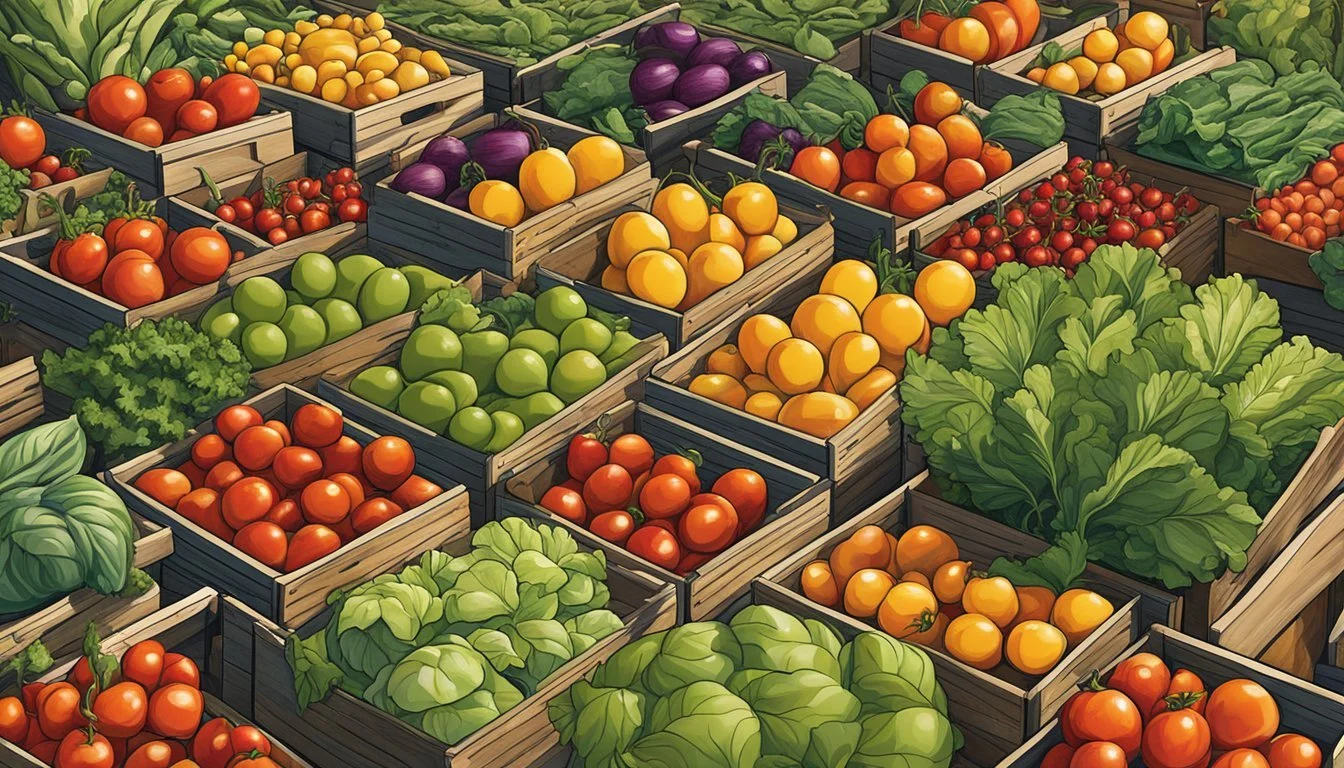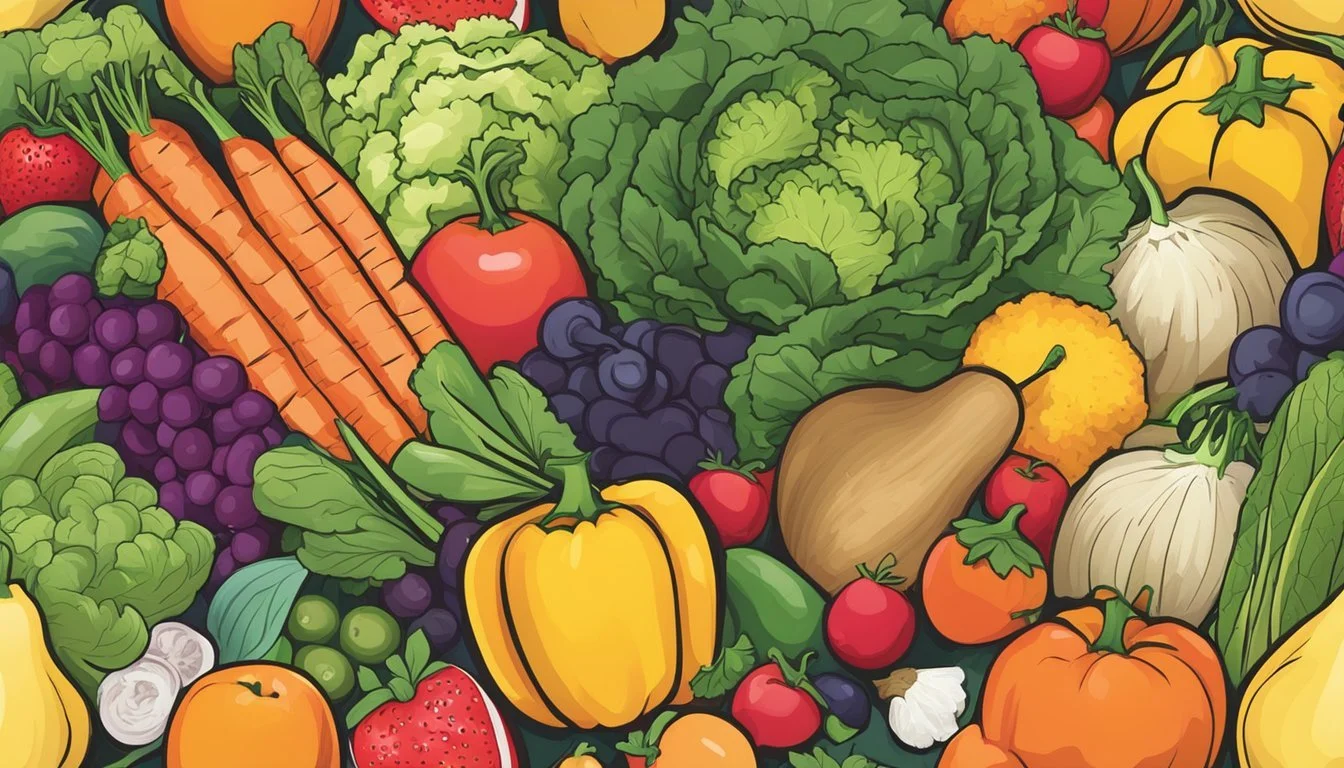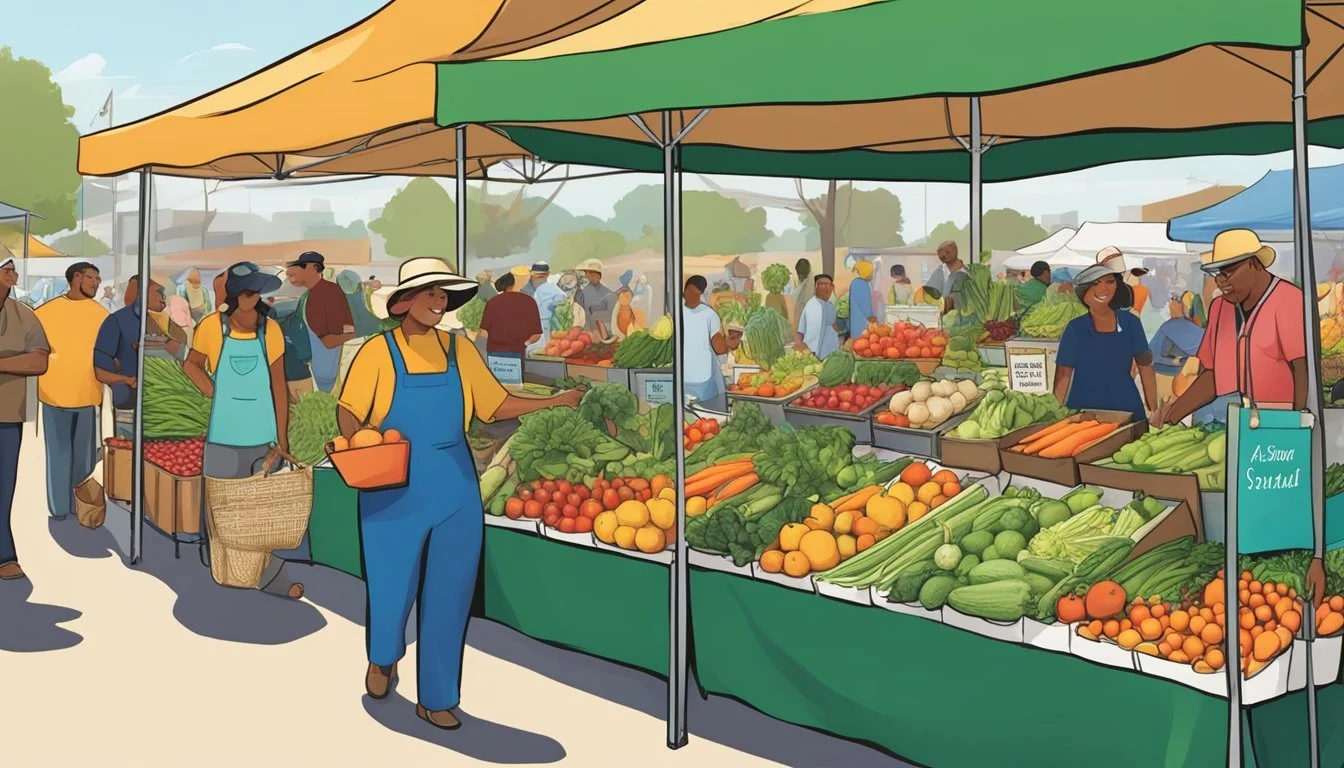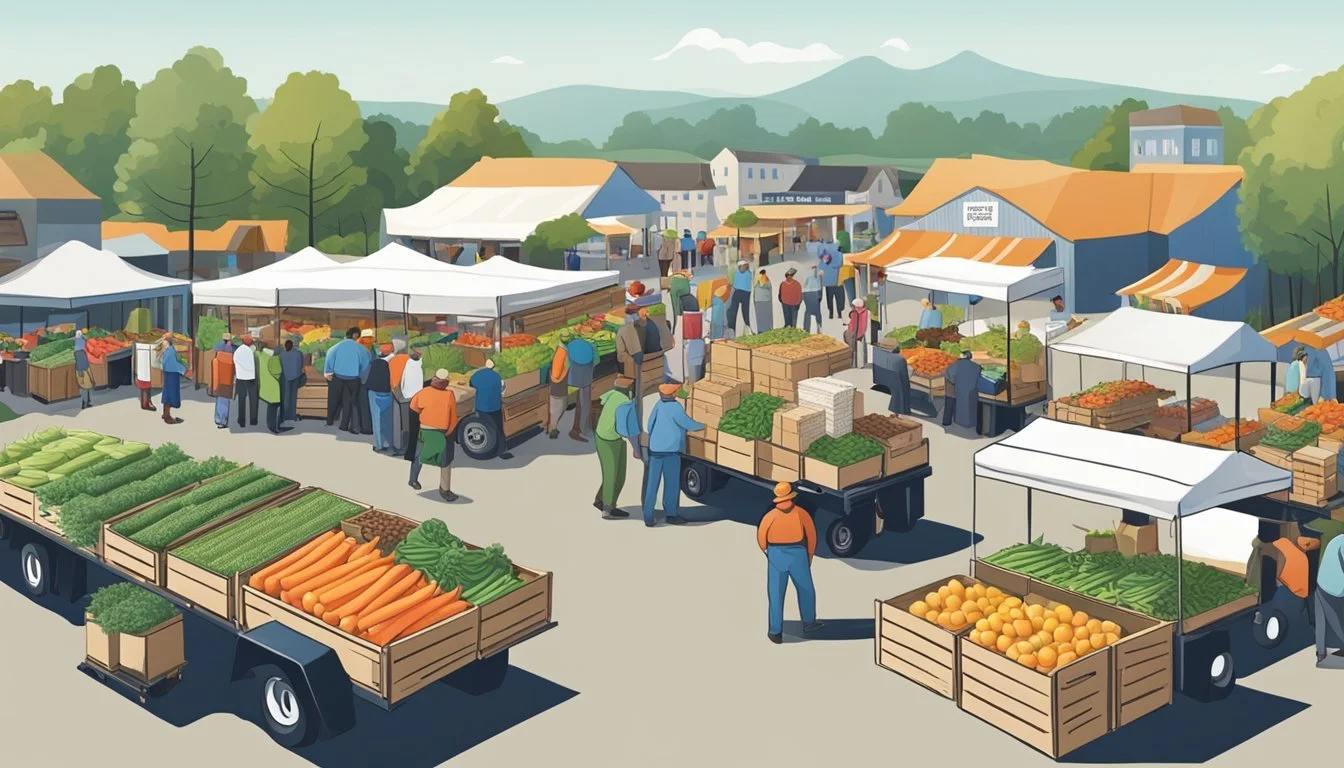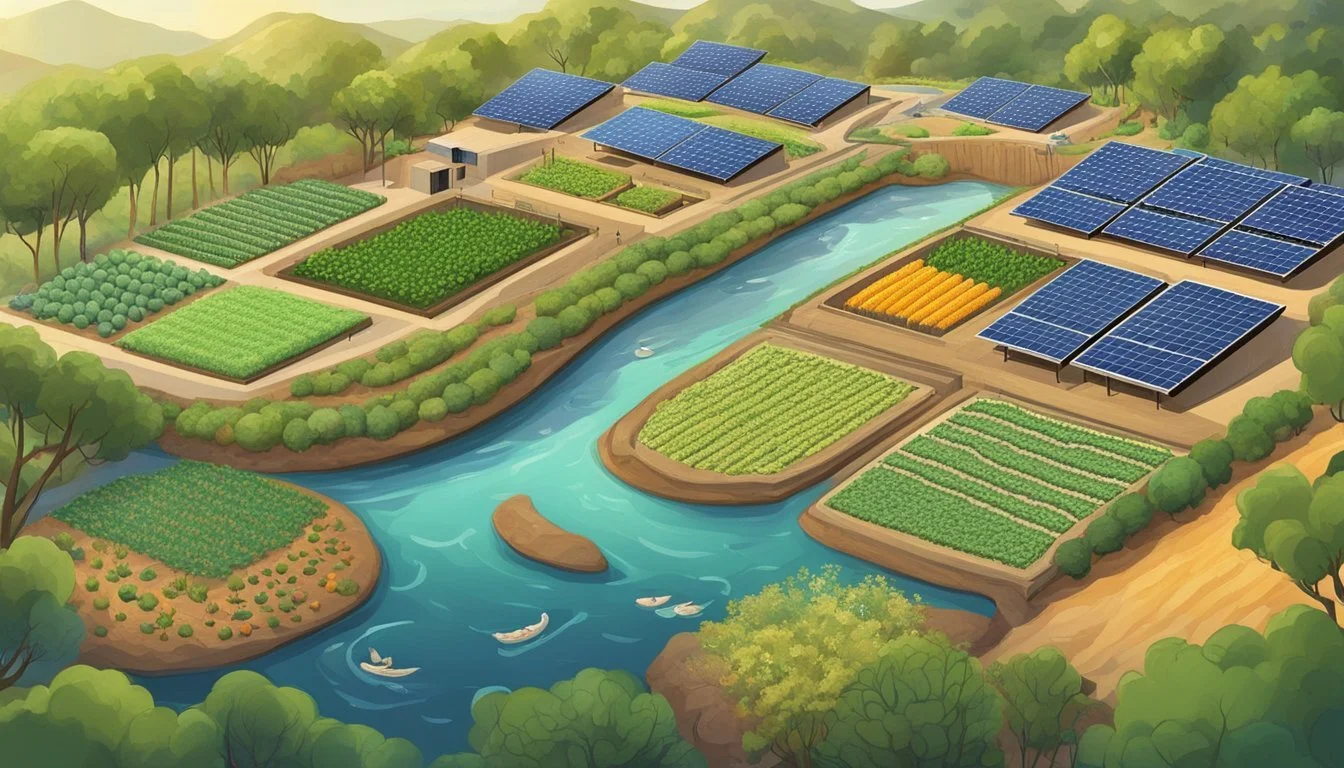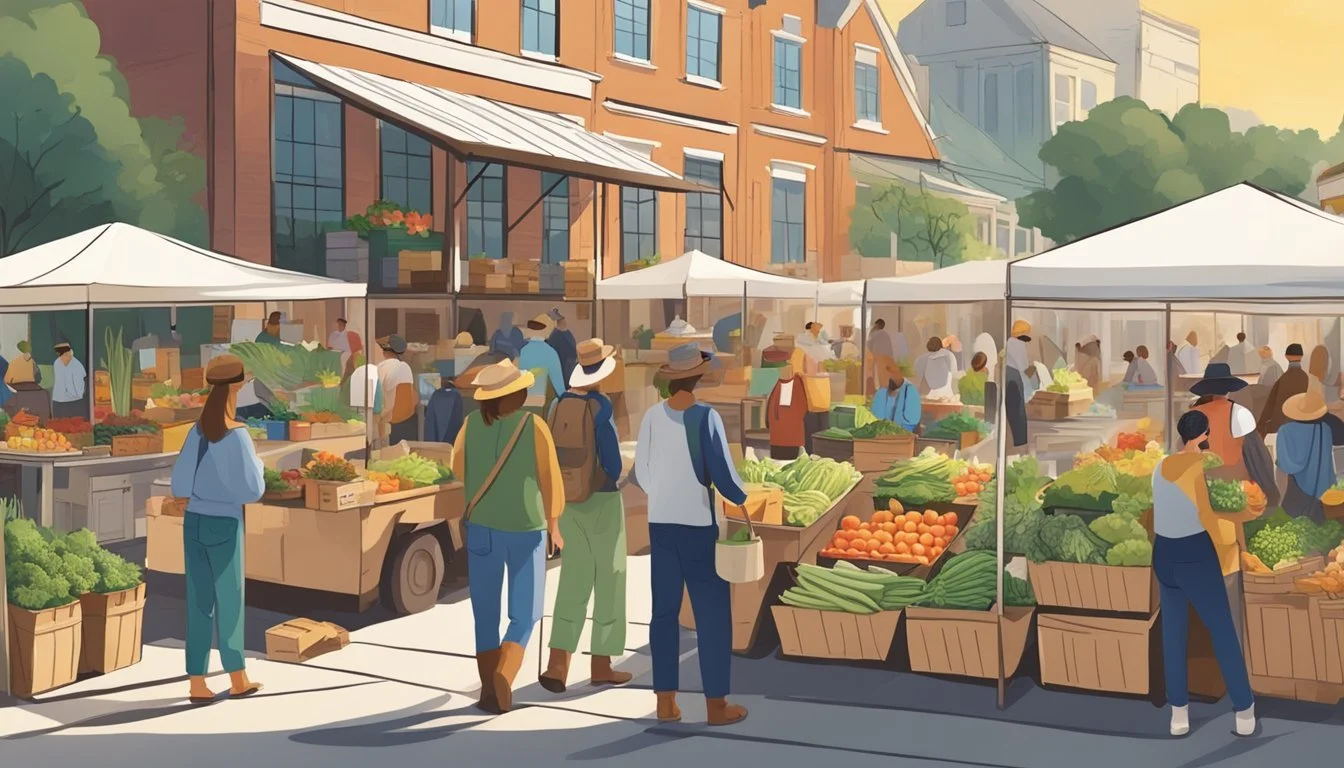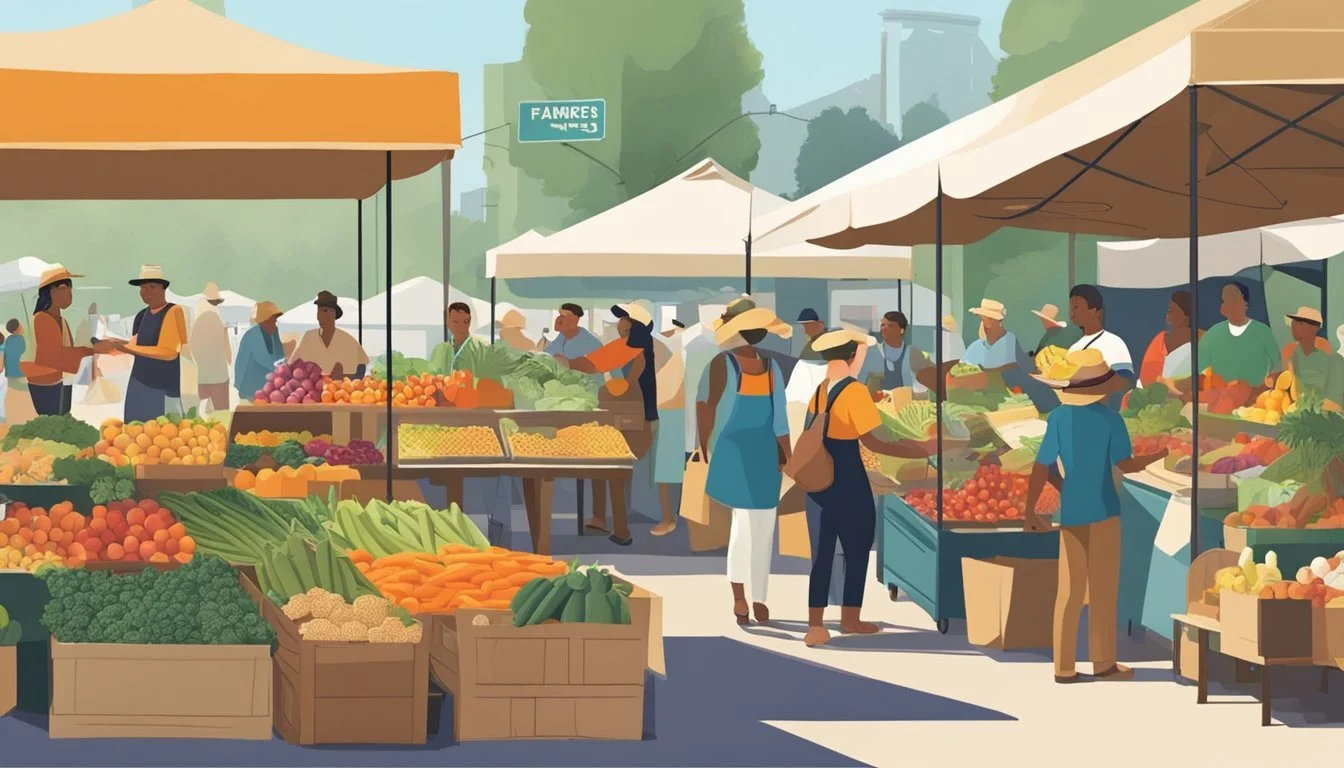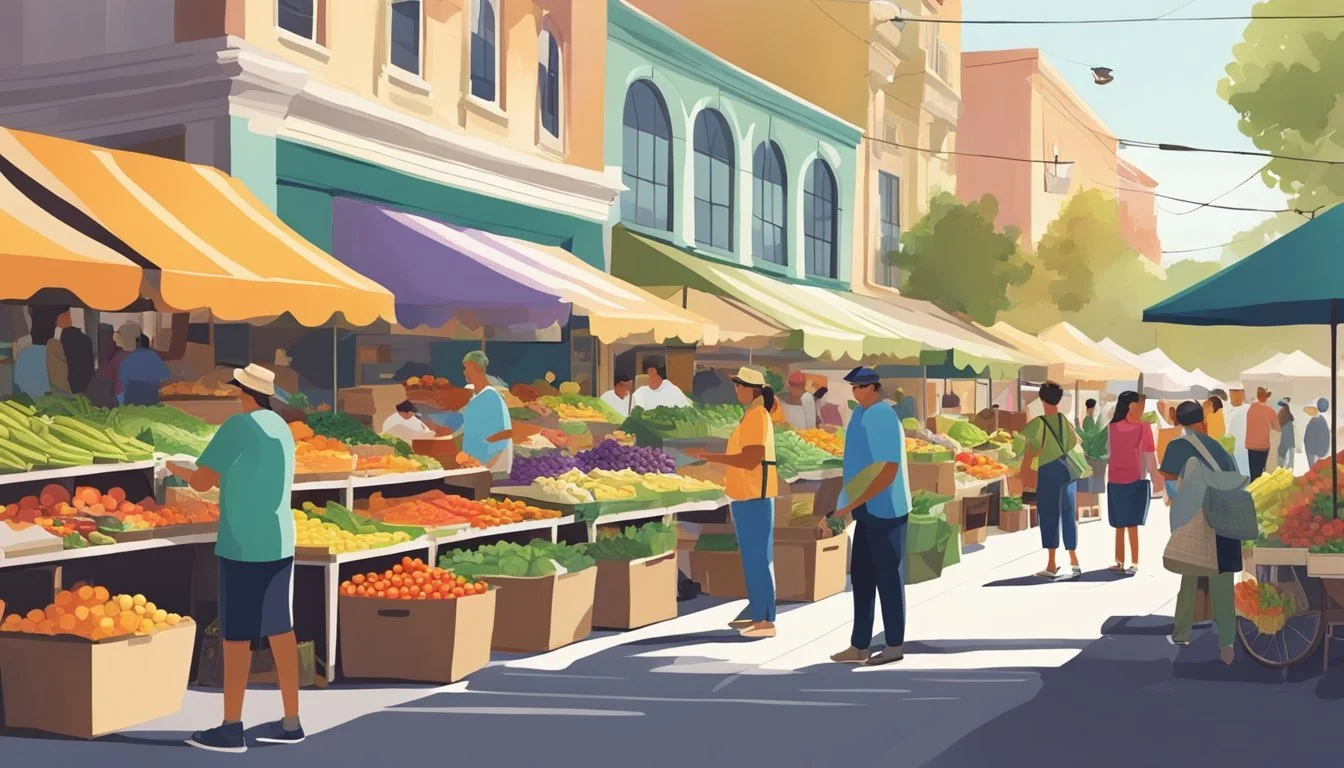Community Supported Agriculture (CSA) in San Diego, CA
A Guide to Local Farm Subscriptions
Community Supported Agriculture (CSA) has become a flourishing model for local food distribution in San Diego, CA, anchoring the relationship between residents and the region's local farms. The concept of CSA centers around individuals who subscribe to the harvest of a local farm or group of farms, thereby receiving regular shares of produce. This model underpins a system of mutual support where consumers enjoy fresh, locally-grown produce, while farmers benefit from a stable customer base and upfront payment for their crops, helping to mitigate the financial risks of farming.
San Diego's mild climate and agricultural diversity present an ideal scenario for CSA programs, providing year-round growing seasons and a rich variety of fruits and vegetables. CSA subscribers in San Diego can expect a range of produce offerings, including pesticide-free and organic options. The weekly or bi-weekly subscriptions typically come with the convenience of being delivered to a pick-up location, fostering a sense of community as members often meet to collect their shares.
Furthermore, the prominence of CSAs in San Diego supports not just local agriculture, but also environmental sustainability and public health. By sourcing produce locally, the carbon footprint associated with transportation is significantly reduced. Additionally, CSA members tend to consume a healthier diet rich in fresh fruits and vegetables, and they gain the opportunity to be more connected with the seasonality and farming practices associated with their food.
What Is Community Supported Agriculture (CSA)?
Community Supported Agriculture, widely known as CSA, is a model that fosters a partnership between producers and consumers within a community, enhancing the accessibility to fresh, seasonal, and often organic produce. It relies on a structure where members support their local farms, with various benefits and responsibilities anchored in this symbiotic relationship.
CSA Origins and Philosophy
CSA began in Japan during the 1960s and has since spread globally, rooted in the philosophy of reconnecting people to the land that provides their food. It is based on the principles of community support, shared risk, and mutual benefits, ensuring the survival of small-scale farms. Consumers become members—essentially stakeholders—in the farm's operation, and in turn, they get high-quality, fresh produce directly from their local farm.
CSA Benefits for Consumers and Producers
For consumers, CSA programs offer a variety of fresh, seasonal, and often organic produce, often at a more favorable cost compared to buying individually. They also provide insight into how their food is grown and create a sense of connection with the land and the people who farm it. Producers gain a consistent and reliable customer base, reducing the uncertainty of fluctuating market prices. This support allows them to focus on quality rather than quantity, promoting sustainable agriculture practices.
CSA Structure and Membership Types
The structure of CSA in San Diego is typically built around memberships that are available on a weekly, bi-weekly, monthly, or even quarterly basis with a commitment, often lasting for twelve weeks or more. Membership types can vary, with some offering annual options that encompass an entire growing season or quarterly memberships for those looking to explore the CSA model. Members may receive a box containing a variety of produce, reflecting what is in season at the time of distribution. The commitment from the community members helps support the farm operations throughout the year.
San Diego's CSA Landscape
Community Supported Agriculture in San Diego County has become a vibrant and essential part of the local food system. Here, residents have access to a wide variety of fresh, locally-grown produce directly from the abundant farms in the region.
Prominent CSA Farms in San Diego County
Sage Mountain Farm, a family-owned and operated farm, is well-known for its commitment to sustainable practices and organic farming. They provide a range of organic fruits and vegetables that reflect Southern California's rich agricultural heritage.
JR Organics, another family farm situated in the county, takes pride in offering a diverse selection of CSA boxes. Their organic crops are cultivated with care, ensuring high-quality produce for their subscribers.
Eli's Farms focuses on year-round production, giving consumers access to fresh produce regardless of the season. Their produce selection is a testament to the region's capacity to grow a wide array of crops.
In line with the increasing demand for local, sustainable produce, Rodney Kawano Farms extends its family-grown vegetables to the community, strengthening the bond between local farmers and consumers.
Yasukochi Family Farms brings a unique mix to San Diego's CSA scene with not only regular and jumbo sized CSA boxes but also farm-fresh items such as flowers and honey, further illustrating the versatility of local farm offerings.
Regional Diversity and Agricultural Richness
San Diego County's ecosystem supports a remarkable diversity in crops, thanks to its microclimates and fertile soil. Farms in the area take advantage of these conditions to grow a wide range of organic fruits, vegetables, and more.
This diversity is what allows local farms to supply CSAs with a rich variety of produce year-round. The close-knit relationship between the community and farmers in San Diego promotes a sustainable food culture unique to Southern California.
CSA Box Contents
Community Supported Agriculture (CSA) in San Diego offers diverse box contents throughout the year, providing families with fresh, organic, and seasonal produce. Subscribers can expect a range of vegetables and fruits, with options for additional specialty items.
Seasonal Varieties of Produce
CSA boxes incorporate seasonal produce to ensure variety and freshness. Customers might receive strawberries and lettuce in the spring, while the fall could include broccoli and cucumbers. Seasonality not only supports local farming cycles but also introduces customers to new produce at its peak flavor.
Organic and Pesticide-Free Options
Many farms in San Diego prioritize organic and pesticide-free methods. Subscribers looking for cleaner eating options can find CSA programs offering vegetables and fruits free of synthetic pesticides. Organic certification ensures adherence to specific regulations for sustainable and chemical-free farming practices.
Specialty Items and Add-Ons
Beyond the standard vegetable and fruit selections, some CSAs offer the ability to add specialty items to their boxes. These may include flowers, local honey, eggs, and artisanal cheeses. Box sizes often vary, with small and large shares to accommodate different family sizes and consumption rates. Customers have the flexibility to customize their box with these add-ons according to personal preferences and needs.
Membership and Community Engagement
Participation in Community Supported Agriculture (CSA) in San Diego involves choosing a suitable program, fostering a direct connection with local farmers, and engaging in community-based events and education initiatives.
Choosing the Right CSA Program
When families or individuals consider joining a CSA program, they should evaluate several key factors to ensure the best fit. A variety of CSA options are available in the San Diego area, offering different sizes of shares, price ranges, and delivery frequencies. Some programs in San Diego have memberships that bill every four weeks, like Brian's Farmers' Markets CSA, with small shares at $15/week and large shares for $25/week.
Quick Checklist for Selecting a CSA:
Share size: Small or large according to the household's need
Pricing structure: Weekly, bi-weekly, or monthly payments
Pick-up/delivery options: Proximity to home or work for convenience
Variety of produce: Seasonal and pesticide-free offerings are commonly preferred
Building Connections with Local Farmers
Members of a CSA have a unique opportunity to support local agriculture and create a direct link with the individuals who grow their food. This relationship benefits both members, by providing them with fresh, locally-grown produce, and local farmers, who gain financial security through the membership model. By becoming a CSA member, one effectively commits to the sustainability of local farms and fosters economic stability within the community.
Benefits for Members and Farmers:
Guaranteed access to fresh produce for members
Steady income and market for farmers
Transparency in food sourcing
Community Events and Education
CSA memberships often include the chance to participate in exclusive community events and educational opportunities, which enhance one's knowledge about sustainable practices and local agriculture. Programs such as SanDiego350's CSA include community involvement as a crucial aspect, aiming to enrich the members’ understanding of agriculture’s role in broader environmental and societal contexts.
Examples of Community Engagement Activities:
Farm visits and tours
Workshops on sustainable living and organic farming
Volunteering opportunities at the farm
By joining a CSA, members are doing more than just purchasing food; they are actively contributing to a healthier community and environment.
Logistics of CSA Distribution
Community Supported Agriculture (CSA) in San Diego operates with a systematic approach to distribution, ensuring fresh produce reaches subscribers through a blend of delivery and pick-up options that cater to various neighborhoods.
Delivery Options
CSAs in San Diego offer home delivery to a wide range of locations. This convenience allows subscribers to receive fresh, locally-grown produce directly to their doorsteps. Delivery schedules can vary, with some CSAs providing weekly or bi-weekly options based on the customer's preference.
Pick-Up Locations and Schedules
Subscribers to a CSA can also choose to pick up their produce at central locations throughout the county. These include diverse areas such as:
North County (Oceanside, Carlsbad, Vista, San Marcos, Escondido, Fallbrook)
Coastal Regions (Solana Beach, Del Mar, Carmel Valley, La Jolla, Ocean Beach)
Inland (La Mesa, El Cajon, Lakeside, Rancho Bernardo, Poway)
Urban Areas (Hillcrest, North Park, National City, Chula Vista)
Pick-up times are predefined, allowing consumers to plan accordingly. Many CSAs operate farm stands at these locations, further supporting local farming and sustenance.
Packaging and Storage
CSAs prioritize the freshness and safety of the produce during transportation. Packaging is designed to maintain optimal freshness, typically using materials that are either biodegradable or recyclable to align with sustainable practices. Upon delivery or pick-up, it is recommended that subscribers store the produce in a cool, dry place or refrigerate it if necessary to extend its shelf life and preserve quality.
Sustainability and Environmental Impact
Community Supported Agriculture (CSA) in San Diego plays a pivotal role in promoting sustainable farming practices and bolstering the health of the local environment. These benefits are realized through methods that minimize harm to the land, support local ecosystems, and reduce the carbon footprint associated with food production and distribution.
Eco-Friendly Farming Practices
Local California growers engage in eco-friendly farming practices aimed at sustainability and reducing environmental impact. CSA farms, like Grow Eco Farm, operate with a strong commitment to pesticide-free farming, eschewing synthetic chemicals in favor of natural alternatives. By doing so, they protect the soil and groundwater quality, ensuring the land remains fertile and productive for future generations.
No synthetic pesticides
Soil fertility management
Water conservation efforts
Contributions to Local Ecosystems
Through their operation, CSA programs contribute positively to local ecosystems. Farms implement crop rotations and diversify their plantings, which not only nurtures the soil but also fosters biodiversity by creating a habitat for various pollinators and beneficial insects. This integration of agriculture and ecology results in a more resilient piece of land.
Biodiversity through varied crop rotations
Habitat for pollinators
Reduction of Food Miles and Waste
CSAs in San Diego significantly reduce food miles by providing locally grown produce directly to consumers, drastically cutting down the energy consumption and emissions typically associated with long-distance food transport. Moreover, the direct link between producer and consumer means less food wastage as the produce is harvested according to the demand of CSA subscribers.
Shortened supply chains
Precise harvest numbers reducing waste
Supporting the Local Economy
Community Supported Agriculture in San Diego represents a vital link between local consumers and the region's small farms, fortifying the local economy and directly sustaining family-owned agricultural businesses.
Economic Benefits for Small Farms
Direct Financial Support: Small farms in the San Diego area, such as those in the CSA programs, receive direct financial benefits from community members subscribing to their produce. This system ensures a stable income for local farmers by providing them with upfront seasonal payments, thus mitigating the financial unpredictability often associated with farming.
Market Expansion: Joining a CSA allows small farms to expand their market without the additional costs of marketing or storefront operations. Family farms, including one-farm CSAs and agricultural co-ops, are thereby empowered to focus on sustainable farming practices while securing their financial footing.
Community Support for Local Agriculture
Sustained Local Economy: When community members support CSAs, they help keep money circulating within the local economy. Each subscription represents a commitment to local farmers and contributes to the economic resilience of the San Diego area.
Strengthening Farm-to-Community Bonds: Local agriculture thrives on community support, which is inherently strong in co-op models and CSAs. By choosing to support these agricultural models, individuals foster a closer relationship with food producers and gain a better understanding of where their food comes from, reinforcing the importance of family farms and local produce in the San Diego community.
Additional CSA Services and Partnerships
San Diego's Community Supported Agriculture programs go beyond just providing fresh produce; they actively contribute to community education, collaborate with non-profit organizations, and strive to make local, healthy food more accessible to all citizens.
Education and Volunteer Programs
Community Supported Agriculture (CSA) operations in San Diego offer educational and volunteer opportunities. They may host workshops on sustainable farming practices or give tours of their facilities to provide a deeper understanding of local agriculture. The Garden of Eden Organics, for example, supports educational programs that encourage community members to learn about the benefits and practices of organic farming.
Partnerships with Non-Profit Organizations
Several CSAs in San Diego have established partnerships with non-profit organizations to broaden their impact. This could include collaboration for domestic violence relief by providing fresh produce to shelters. The emphasis is on supporting not only physical health with nutritious food but also aiding in the holistic well-being of individuals in crisis.
Local Food Accessibility Initiatives
Efforts to enhance food accessibility are a priority for San Diego's CSA services. These initiatives may involve sliding scale payment options or donations of produce to local food banks. By doing so, CSAs aim to ensure that economic status is not a barrier to accessing healthy, local foods, promoting food equity within the community.
Choosing a CSA in San Diego
When one considers joining a Community Supported Agriculture (CSA) program in San Diego, they are directly supporting local farmers and the local community, while receiving fresh, seasonal produce. Making an informed decision involves understanding what factors come into play and where to find accurate information on available CSAs.
Factors to Consider
Type of Produce: A potential subscriber should inquire about the variety of produce offered. Does the CSA provide just vegetables, or are fruits, herbs, and other types of produce included? CSA boxes from local San Diego farms may contain a range of items from greens and vegetables to fruit and citrus.
Share Size: Understanding the share sizes is crucial. Some CSAs offer different options such as small shares for individual consumers and larger shares suitable for families.
Pick-up/Delivery Options: Accessibility is key. Does the subscriber need to pick up their box, or is home delivery available? In San Diego, some CSAs deliver to the subscriber's home or a designated location nearby, saving on gas and travel time.
Subscription Flexibility: Evaluate the subscription terms. Are there options for weekly, bi-weekly, or monthly subscriptions? While some farms, like Wild Willow Farm, offer flexibility with full or half share plans, others might have a fixed schedule.
Cost: The price of a CSA share varies. For instance, shares may range from $15 to $35 or more per week, depending on the size and variety of the box.
Community Engagement: Many CSAs, such as those in Valley Center, promote involvement with the farm through events and volunteer opportunities, enhancing the sense of community connection.
Local CSA Directory and Resources
Local directories and resources provide a wealth of information for individuals who are interested in joining a CSA. The following table is a reference guide for some CSAs available in San Diego:
CSA Name Location Offerings Subscription Options Contact Info Brian's Farmers' Markets CSA San Diego, CA Locally-grown, pesticide-free fresh produce Small and large shares, billed every 4 weeks Website San Diego County Farm Bureau San Diego, CA Direct link between local farmers and consumers; fresh locally grown fruits and vegetables Various, with home or nearby location delivery Website Wild Willow Farm San Diego, CA Farm fresh produce including greens, herbs, veggies, fruit, and citrus Full share and half share plans Website SanDiego350 - CSA's San Diego, CA Information on multiple CSAs across San Diego County - Website Yasukochi Family Farms San Diego, CA Seasonal fruits and vegetables with a focus on health and community Weekly CSA boxes Website
In addition to individual farm websites, organizations such as San Diego Edible and SanDiego350 offer maps and additional information on a wider array of CSAs in the region. Joining a CSA is more than just a transaction; it's choosing to be a part of a sustainable food community that values supporting local, eschewing the need to rely on a supermarket for all produce needs.
FAQs About CSAs in San Diego
What is a CSA? Community Supported Agriculture, or CSA, is a system where consumers support local farmers directly by purchasing a "share" of produce. Members receive regular deliveries or pickups of fresh, locally grown produce.
How does one become a member? Individuals can become members by making a financial commitment, typically through a subscription to a CSA farm.
What do CSA boxes typically contain? CSA boxes are filled with a variety of produce, including fruits, vegetables, greens, herbs, and sometimes additional items like honey or flowers, depending on the farm's offerings.
How often are CSA boxes delivered? Delivery frequencies vary. Some CSAs offer weekly deliveries, while others provide a bi-weekly option.
Can families participate in CSAs? Yes, CSAs are family-friendly. They often come in different sizes to accommodate different household needs.
Delivery Frequency Share Type Description Weekly Full Share Suitable for families or individuals with high produce consumption. Bi-weekly Half Share Ideal for smaller households or those with moderate produce consumption.
Are there CSAs available in San Diego? There are multiple CSAs available in San Diego that offer a range of locally-grown, pesticide-free produce, supporting the local farming community.
Conclusion
Community Supported Agriculture (CSA) programs in San Diego offer a substantial way for local residents to engage with and support their agricultural community. By committing to a CSA, members directly contribute to the sustainability and success of local farmers.
Membership Advantages:
Access to fresh, locally-grown, pesticide-free produce
Support for local farmers and the local economy
Opportunities to learn about and experience a variety of produce
In San Diego, the diversity of CSAs available ensures options that cater to different needs and preferences, including the size of produce shares. Consumers are encouraged to participate due to the convenience of weekly or bi-weekly pickups and the potential cost savings associated with upfront payments for multiple boxes.
Local farmers, in turn, receive a reliable source of income and a committed customer base, enabling them to plan and operate their farms effectively. This symbiotic relationship fosters a sense of community and has a positive impact on the local food system.
Engagement Impact:
Enhanced sustainability of local agriculture
Stronger farmer-consumer relationships
Improved quality and nutritional value of food accessible to the community
For those residing in San Diego, participating in a CSA is not merely a purchasing decision—it is a step toward creating a robust local food ecosystem. The commitment to a CSA reflects a collective resolve towards a healthier lifestyle and a resilient local economy.

